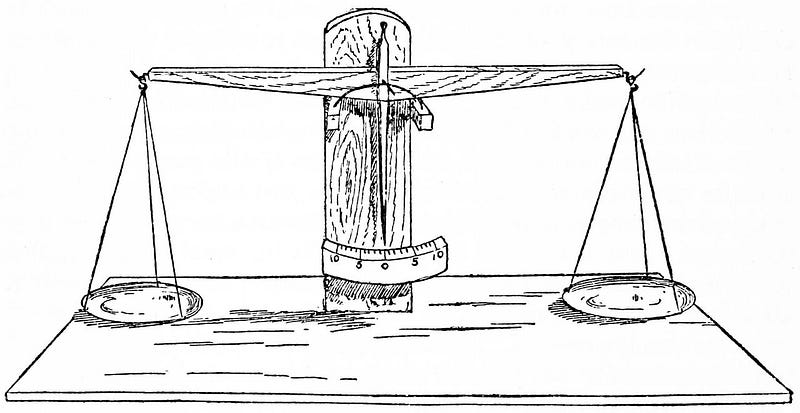
The way we look at a our personal and professional lives takes a toll on both. But it doesn’t have to be that way.
Since the time I began working a grown-up job, I have been hearing things about “work-life balance”. From what I can gather, this is supposed to mean something like a tolerable, or even desirable, division of time and energy among one’s professional and personal endeavors. If you have a good work-life balance, the conventional knowledge says, you are not sacrificing the health of one part of your life for the sake of the other. The two parts are effectively balanced.
While I respect the spirit of the phrase “work-life balance” and the sentiment associated with it, I disagree with its major premise. I don’t think balance is the right way to think about work and life because it assumes that we can (and should) strive to separate our work and our life. It assumes that we can each neatly separate ourselves into two people, and create two lives (or more!). And this type of thinking robs us of the opportunity to live a unified life — one where what we do for money and what we do with that money are in lock-step.
The “balance” model of managing the personal and professional is outdated, and needs to be replaced. Rather than balancing our career and our personal lives, we should aim to harmonize them. When done right, the benefits can be truly great.

Tipping the Scales
Perhaps the coining of the phrase “work-life balance” was a happy accident, and there is no need to read anything into it. But at the very least, we have come to use the phrase to describe a relationship between two aspects of a life. And it’s curious that the mechanism we chose to illustrate that relationship is a balance. If you think of a balance scale, the relationship between the two sides is clear: it’s one of opposition, separation, and direct comparison — a zero-sum game. One side’s loss is the other side’s gain, and vice versa.
More concretely, balance often manifests in a home life that doesn’t involve talking or thinking about work. But this “balance” comes by way of compartmentalization, and serves to make us more unhappy in two significant ways.
First, by separating our work life from our home life, we are making ourselves effectively two different people. This seemingly well-intentioned split is not only more difficult to manage, but also less fulfilling. For many, it means being a different person at work than at home, a personality split that can exacerbate over time. Eventually, it grows into a wedge that drives a permanent gap between two parts of what should be one life.
But even if you don’t develop two different personalities, you’re still left with the problem of that zero-sum game: tension and trade-offs. When you’re merely “balancing” work and life, you create tension between the two parts of yourself, and there’s no reason for it. Each of these parts of your life need you to make decisions — important ones. And if the decisions are arranged in that zero-sum, balance paradigm, you’re bound to both disappoint and feel disappointed at some point.
The second way that “balance” sets us up for unhappiness is that it chokes off what should be a synergistic and collaborative relationship. Unless your job is inherently unethical, or against your core values, there’s always an opportunity to use it as an outlet for your best personal work. And it doesn’t take that much imagination.
The simple virtues of pride in good quality work, keeping your commitments, serving others, active listening, creative thinking, and so many others are present as opportunities every day on the job. Whether you choose to see your job’s seemingly mundane tasks as opportunities to hone and express your character is the choice. And if you choose to balance your work against your life, rather than integrate the two, it’s an inferior choice.
And in that same vein, when we don’t integrate our professional victories and struggles into our personal ones, we miss a huge opportunity to allow friends and family to connect on a deeper level with us. Being able to celebrate with your family when you close a huge deal and being able to vent and seek comfort when a day or two goes badly — that can only help your personal relationships.
But may times, when we merely balance the professional against the personal, those in our personal lives don’t have a context for any of our professional experiences. Because we tend to try not to “bring work home”, we don’t include our closest people to us in the conversation about work, and so they effectively never learn the language — so to speak. They only learn to see work as the other part of your life, rather than as a vital and integrated part of it.
Luckily, there’s a alternative way to view the relationship between the personal and professional that is much healthier — for both your professional and personal lives.
The Concept of Harmony
Rather than viewing your work life as something that competes with your personal life, it is far more helpful to view it as something that collaborates with and enriches it. Obviously, this is more difficult if you hate your job, but don’t use that as an automatic excuse. After all, part of why many people hate their jobs is because they live day to day with that job competing with the rest of their life for time and attention.
Rather than viewing your job as competing for your time and attention, it’s possible to view it as an opportunity to exemplify, strengthen, and reaffirm your character. It’s also possible to include those in your personal life in your thoughts and feelings about work. Think about it: you spend 1/3 of your day — and ultimately your life — at work. What good argument is there (unless your job is top secret) for you to reduce talk of your job “work was good”. That’s unfair to your close confidants, and it’s unfair to you.
Harmony, unlike balance, can exist just as well when your work is going well as when your job seems to suck. In fact it’s more important at those times than when things are going well. Your personal relationships should be rich enough to provide you support and guidance in your professional life, and it’s on you to do that enrichment. Sure, your spouse, partner, or friends should ask about work and genuinely want to know, but they’re looking to you for clues as to how much you want to talk about it. No one wants to hear a constant parade of complaining, but people close to you do want to hear about your true thoughts and feelings. Work is no exception.
How to Harmonize Work and Life
Harmonizing your work and life is about holism. You have one whole life, and work is a part of it. Most likely, you’re working as a way to support you and your family (or your lifestyle, which includes the people in you life). To that extent, your partner and the people close to you are stakeholders in your professional journey. Work-life harmony is about treating them that way.
Let’s assume you have a romantic partner, and you share a household of some sort. The professional decisions you make affect them in various ways. More time at the office or traveling means less time with them. Simply making that trade-off and explaining it to them later is a pretty poor way to do it. Rather, let them know that that’s the type of decision you’re looking at making. Get their thoughts, get buy-in on a collaborative plan of action, and make the decision confidently. Repeat that approach regularly.
Harmonizing is about an attitude and approach more than anything, so there’s not necessarily a formula for harmonizing work and life. But here are a few best practices. For the sake of brevity, I’m assuming that you have a significant other or partner, but this works just as well for any people that are a big part of your personal life.
- Talk to your partner regularly about your work, honestly and openly (not just griping and complaining). Make those conversations regular ones. Include triumphs, stumbles, tough meetings, etc. Talk about what you’re proud of, and what you’re trying to improve. Ask your partner the same about their work.
- Let your partner know when you’ve got to make a tough decision between demands of work and demands of your personal life — especially when it could directly impact them. Educate them on the real pressure you feel, and let them have input.
- Be mindful of how much the people in your life contribute to your success at your job, and thank them for it periodically. This often gets overlooked.
- Treat your partner like a trusted adviser when it comes to work decisions. Let them know what you’re facing, and get their feedback and advice. You don’t have to take their advice, but let them know that their input is important.
These are just a few things you can do to harmonize work and life, and there are certainly more. But again, the essence of harmonizing work and life is treating the people in your personal life as stakeholders in your life — your whole life — and treating them that way. Simply remembering that and acting on it will help immensely in successfully harmonizing your work and life. With that harmony comes a more sustainable kind of happiness.

This story is published in The Startup, Medium’s largest entrepreneurship publication followed by + 381,508 people.
Subscribe to receive our top stories here.

